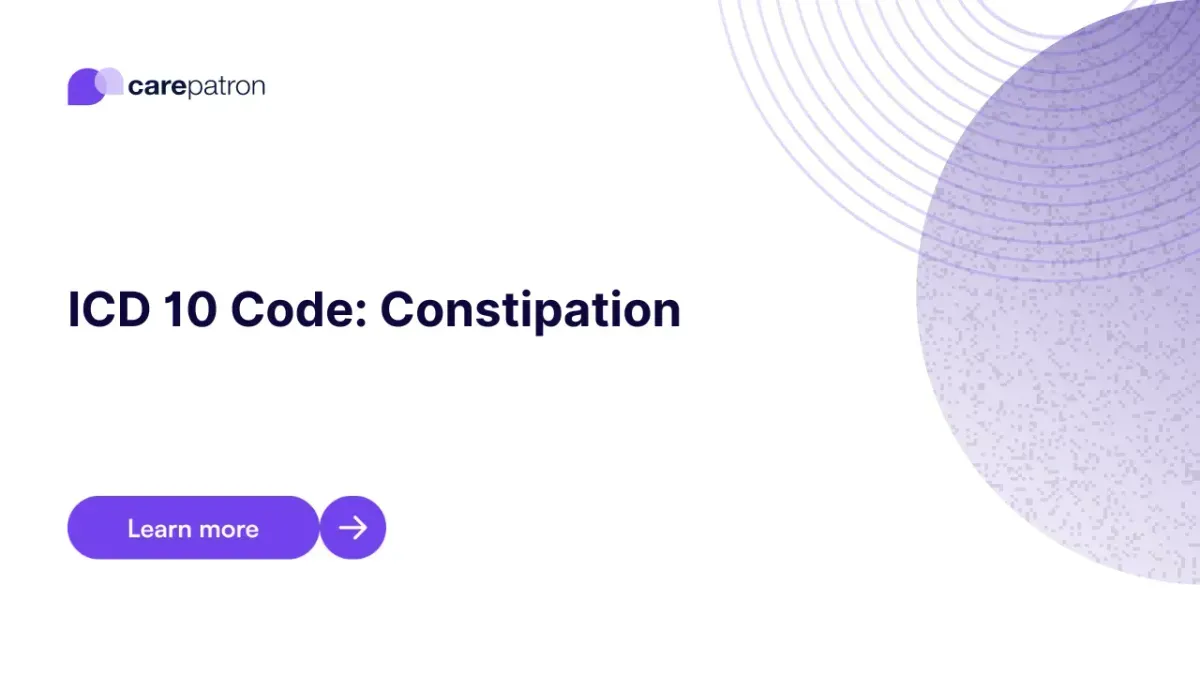
Constipation ICD-10-CM Codes
Read this short guide and learn about constipation ICD codes you can use.
Use Code
Commonly asked questions
Yes, but we recommend not using them because they are invalid and unbillable.
Constipation can cause problems for some people. It can cause anal fissures to appear, damage your pelvic floor muscles/nerves, poop pile-ups in the rectum and anus, and diverticulitis.
Hydrate, avoid processed food, exercise, add vegetables and fruits to your diet, add high-fiber foods, add over-the-counter fiber supplements, and avoid holding off on pooping.
EHR and practice management software
Get started for free
*No credit card required
Free
$0/usd
Unlimited clients
Telehealth
1GB of storage
Client portal text
Automated billing and online payments
